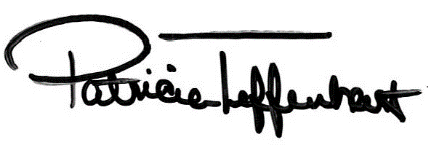Dear Friends, Colleagues, and Allies,
April is Sexual Assault Awareness Month (SAAM) and during this time our blog and social media platforms will be full of new posts from our staff and colleagues. I’m looking forward to sharing these updates with you as I’m proud of our work and I’m excited for the year ahead.
But, SAAM must be more than teal ribbons and clever slogans. There’s an inarguable need for us to dig deep below the surface…to challenge the systems and norms that live at the intersections of oppression. We cannot create safer communities while ignoring the very structures that keep us oppressed. As sexual violence service professionals, we cannot work alone. We must forge robust, mutually-beneficial, respectful relationships with the communities, organizations, and individuals working at the intersections of racism, sexism, ageism, homophobia, transphobia, ableism, classism, etc. These are the social constructs that permit sexual violence to occur, keep survivors from disclosing, and shame them once they do…and they are all present at the intersection of other forms of oppression.
We must discuss the impact of laws like House Bill 2 in North Carolina, which denies basic rights to members of the LGBTQ community. How can we talk about physical autonomy and safety (common themes when discussing anti-sexual assault efforts) when laws further strengthening bigotry and fear are passed, stripping entire communities of the right to use the restroom that supports their gender identity?
We must discuss the influence of racism, classism, and the blatant abuse of power highlighted in the Holtzclaw case in Oklahoma. How can we ask women of color to report their rapes to local law enforcement when the individual committing the assaults is part of that system?
We must discuss the water crisis in Flint Michigan. How can we ask communities to trust their elected and appointed officials (eg: trust the judicial system to hold perpetrators accountable), when local “leaders” have willfully and neglectfully allowed, and hidden, the poisoning of the local water supply?
Each of these examples highlight communities that have not been heard, respected, and valued. We cannot be moved by one injustice and blind to others. For that reason, over the next month, you’ll hear about our diverse portfolio of projects and initiatives that speak to these intersections, including the first ever statewide conference highlighting the intersections of domestic and sexual violence; the technical assistance and training we’re providing New Jersey’s institutions of higher education in relation to sexual violence prevention and intervention; our Community Conversations in which we’re strengthening our relationship with marginalized communities by forging relationships with gatekeeper organizations; working with the New Jersey State Police to strengthen law enforcement training in relation to sexual assault, etc.
Our work, as a statewide anti-sexual violence coalition is not “women’s work” or “liberal work”. It’s social justice work. It’s human rights work. We believe that every person should be able to live their life without the fear of violence, harassment, intimidation, violation, degradation, etc. During SAAM, we ask that you consider how the work to address and eradicate sexual violence is crucially linked to ending oppression in all its forms. I thank you for the role you play in creating a safer, more just, society.
With appreciation,

Patricia Teffenhart, MPA
Executive Director





